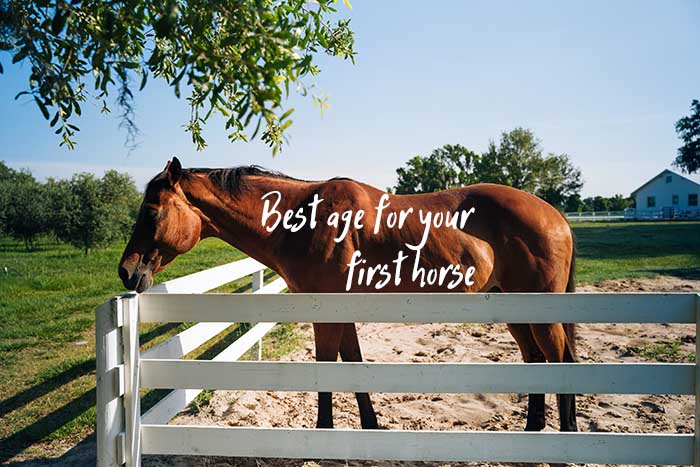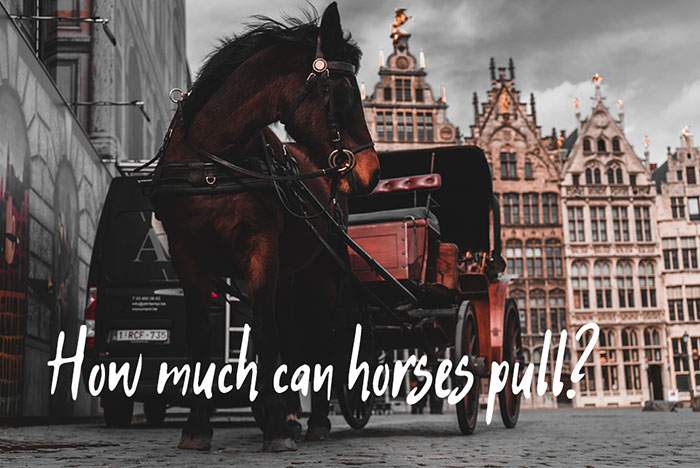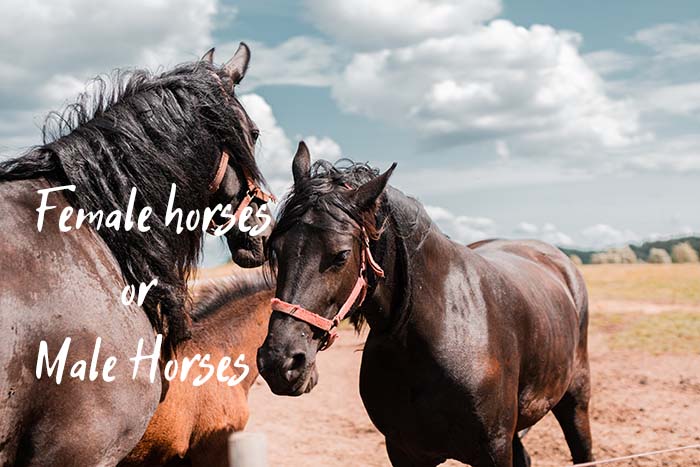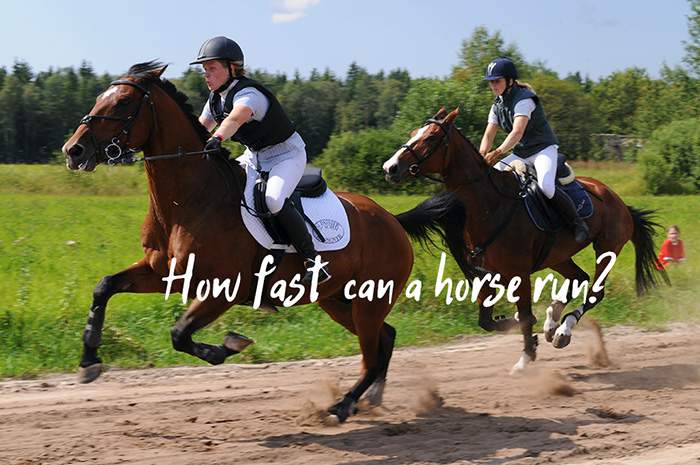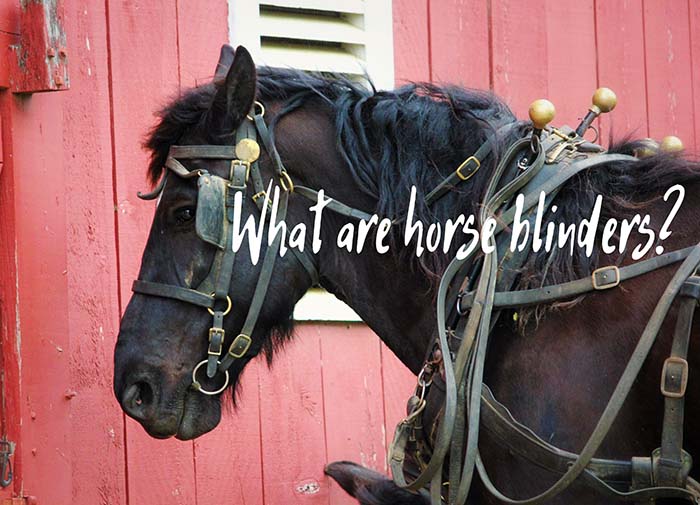Do Horses Like Being Ridden? (A Neutral Point of View)
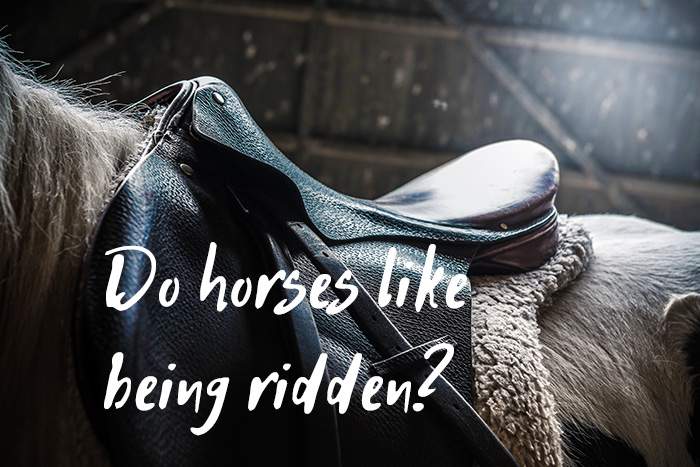
We’re so used to seeing horses being ridden that most of us take it for granted. In movies, at least, horses are being ridden all the time, whether we’re talking about races, war, or pulling carriages. The reality is that horses don’t need a rider to go about their lives in the wild. Actually, they only form bonds with other horses if left to their own devices.
We definitely need horses more than they need us. We put them to work, ride them, and enjoy caring for them. But do horses actually like being ridden? Or does the extra weight on their back cause them pain?
I think it’s quite clear by now that horses are incredibly sturdy and powerful animals. They can carry a human on their back without hurting or without suffering any medical issues. They can even pull tremendous weights, and some breeds such as draft horses actually enjoy being put to work as opposed to sitting around all day.
Since our means of communicating with horses is rather limited, we can’t know for sure if they enjoy being ridden or if they don’t even care too much about it. But if we were to take on a neutral point of view from nature’s perspective, being ridden is an unnatural thing for a horse. It might not disturb it or it might not cause too much physical discomfort, but it’s definitely not a natural state, and I think most horses could do without being ridden their entire lives.
The bond between the rider and the horse.
Horses might not care too much if they’re being ridden or not, but they definitely care about the rider. If a horse has a strong bond with its owner, and that owner decides to ride the horse, then the horse will be content that it’s making the owner happy.
Horses enjoy spending time with us if we treat them right. They form bonds with us, and they listen to our commands. In this case, a horse will enjoy being ridden simply because it gets to spend some time with its favorite human. It’s not about the act of riding itself but more about spending time together.
So what about horses that live at equine centers, or ponies that get to be ridden by people they don’t know all the time? Most of the time, those horses were trained specifically for carrying people around. Of course, a horse will much rather be ridden by someone it knows, and preferably by someone who knows how to ride a horse properly.
They will put up with strangers most of the time, just as long as they’re treated with kindness and respect. Of course, horses do have their limits, and we’ve all seen videos of overweight people trying to ride a horse only to be bucked off. I’m not trying to shame anyone, but horseback riding is not for everyone.
How to tell if a horse doesn’t like being ridden?
I’ve previously written an article about understanding horse sounds and improving communication. While it’s definitely important to listen to your horse whenever you put it to work or try to ride it, there are other things that you can pay attention to in order to get a clearer picture of what’s going on.
A horse that doesn’t the situation that it’s being put in will show clear signs of distress, including stomping its feet, raising its rear foot, raising its head, or pinching its lips. A discontent horse might also clamp down its tail, pin its ears back, and the whites of its eyes might be showing. Generally speaking, if you’re paying close attention, the horse will clearly look uncomfortable.
It’s very important to know your horse well. This means you need to know what things bring joy and what things bring unhappiness. By paying attention to your horse’s feelings while out of the saddle, you’ll be able to manage your horseback riding sessions with greater ease and more efficiency.
Not all horses enjoy being ridden. It depends on their breed, their temperament, their history, and their medical chart. They might tolerate the saddle some days and they may dart away at the mere sight of it a few days later.
When is a horse too young or too old to be ridden?
When it comes to young horses, one shouldn’t ride them until their knees have developed properly. This process varies from breed to breed, but generally speaking, a draft horse won’t be fully developed until it reaches around 4 years of age. Racing horses such as the Thoroughbred will mature faster.
As for older horses, they can be ridden as long as they don’t have any serious medical conditions. You should check up with your vet and farrier regularly in order to keep up with your horse’s health issues. If the horse is sound and it still has some energy, it can usually be ridden into its later years. However, most horses already have some issues that prevent them from working when they get a bit older. Just something to keep in mind.
How to make horse riding easier for your horse?
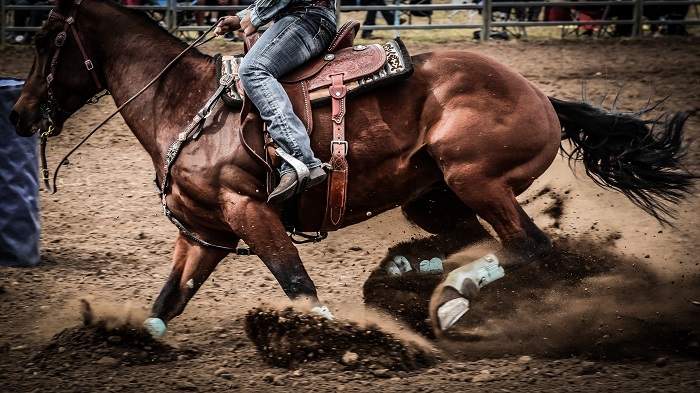
I said it before and I’ll say it again: horses are social creatures. They enjoy being around other horses, and they enjoy spending time with humans as well. If your horse behaves better when it is around other horses, maybe you should try riding along with a friend. Horses feel safer when around other equines, and having another horse around might dramatically improve your horse riding sessions.
If you know that your horse prefers to be outside at certain times of the day, you can schedule your riding at the right time. Also, make sure that the weather is nice, and that the riding conditions are suitable. A horse cantering on rough ground, let alone tarmac or concrete, is always a bad idea.
Always choose proper tack that fits right and is comfortable. An uncomfortable horse will not enjoy being ridden. It truly makes all the difference in the world. Moreover, make sure to time the riding sessions accordingly. Don’t overdo it if you see that your horse is getting tired or bored.
Does the whip hurt the horse?
Whipping is very often associated with horses and equine activities. In horseback riding, and in racing particularly, the rider whips the hindquarter of the horse in order to make it run faster.
Some argue that that particular part of the horse is full of muscle and that the horse doesn’t even hurt when it’s being whipped. I say that if the horse wouldn’t feel the whip or it wouldn’t hurt it, it wouldn’t respond by running faster in the first place. It’s true that horses have thicker skin than use and that they can take much more punishment. However, I do believe that whipping hurts a horse, especially if done repeatedly. The area will swell up and bruise, which is further evidence that whipping causes damage.
In horse racing, riders often choose to whip the horse repeatedly in the final stages of the race. Recent rulings dictate that the whip must not be used more than 5 times during the last 109 yards. This rule was implemented for a reason, wouldn’t you agree?
Final words.
Do horses like being ridden? Sometimes they do, and sometimes they don’t. It’s not a clear answer, I know, nor is it a particularly satisfying one. The good news is that most horses don’t mind being ridden, as long as the tack is proper and the rider is calm.
Horses associate activities with one another. For instance, if being ridden means getting yelled at or being taken on rough roads, being whipped, or being scolded, then the horse will not enjoy this activity at all. It will associate it with a negative experience, and it will try to avoid it whenever it can.
However, if the horse is being treated properly and with respect, and if it even gets a treat before being ridden and after, it will definitely have positive feelings about it. I hope this makes things a bit clearer for you.

